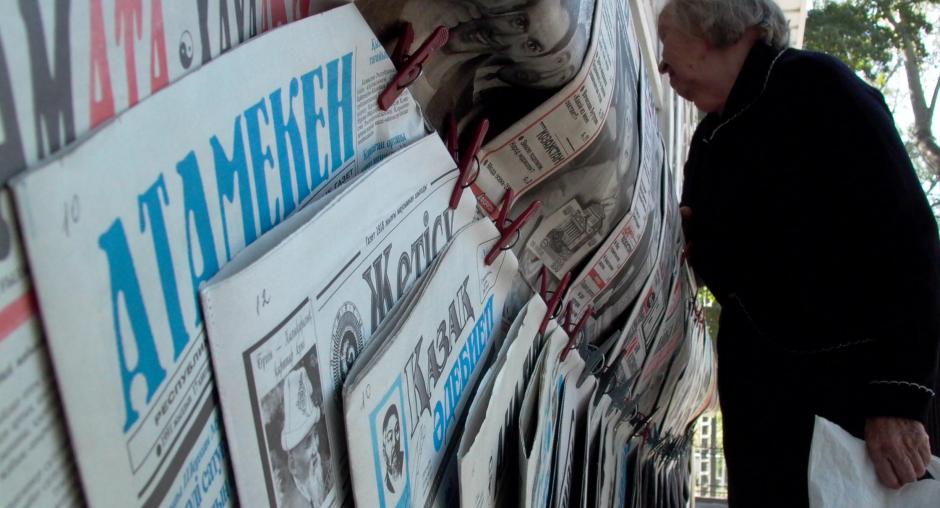Newsroom
Nobel economist talks to Kazakhstani journalists about oil revenue transparency
ALMATY 17 November 2003

(Lubomir Kotek/OSCE)As a participating State, Kazakhstan has agreed to respect OSCE commitments related to freedom of media and expression. (Lubomir Kotek/OSCE) Photo details
ALMATY, 17 November 2003 - Opening a three-day OSCE co-financed workshop for Kazakhstani journalists on reporting on oil wealth and its impact on development, the Nobel laureate, Joseph Stiglitz, said today that managing oil wealth was a great challenge for transitional countries such as Kazakhstan.
The country could be a test case that might become a role model for other countries with large energy resources, he said, depending on how its leadership faced this challenge.
Professor Stiglitz added: "The desire by government leaders to control wealth generated by natural resources often discourages the development of democracy and undermines stable economic development."
In particular, nations needed to decide how to deal with influxes of large revenues without producing distortions of income inequality, corruption, misallocation of resources, and macroeconomic imbalances such as high inflation and low growth.
Prof. Stiglitz, who was awarded the 2001 Nobel prize in economics for his ground breaking work on economic imbalances caused by asymmetric information, underscored the importance of governments providing public information on how much money they receive from natural resource sales and informing their citizens on how these monies are being spent.
He also told the Kazakhstani journalists that nations should view oil wealth as part of their national endowment, belonging to all citizens and generations; governments that use these resources for their own benefit were robbing their nations of a patrimony that belongs to all.
The journalism workshop is part of a series being planned by Caspian Revenue Watch, a part of the Open Society Institute, which in June released a report, 'Caspian oil windfalls: who will Benefit?'. It is organized by the Initiative for Policy Dialogue, an international economist network based at Columbia University in New York, and by the Kazakhstan Press Club.
As well as the OSCE, it is co-funded by the Soros Foundation-Kazakhstan, the International Centre for Journalists in Washington DC, the Initiative for Policy Dialogue, and the US Embassy in Kazakhstan.
The country could be a test case that might become a role model for other countries with large energy resources, he said, depending on how its leadership faced this challenge.
Professor Stiglitz added: "The desire by government leaders to control wealth generated by natural resources often discourages the development of democracy and undermines stable economic development."
In particular, nations needed to decide how to deal with influxes of large revenues without producing distortions of income inequality, corruption, misallocation of resources, and macroeconomic imbalances such as high inflation and low growth.
Prof. Stiglitz, who was awarded the 2001 Nobel prize in economics for his ground breaking work on economic imbalances caused by asymmetric information, underscored the importance of governments providing public information on how much money they receive from natural resource sales and informing their citizens on how these monies are being spent.
He also told the Kazakhstani journalists that nations should view oil wealth as part of their national endowment, belonging to all citizens and generations; governments that use these resources for their own benefit were robbing their nations of a patrimony that belongs to all.
The journalism workshop is part of a series being planned by Caspian Revenue Watch, a part of the Open Society Institute, which in June released a report, 'Caspian oil windfalls: who will Benefit?'. It is organized by the Initiative for Policy Dialogue, an international economist network based at Columbia University in New York, and by the Kazakhstan Press Club.
As well as the OSCE, it is co-funded by the Soros Foundation-Kazakhstan, the International Centre for Journalists in Washington DC, the Initiative for Policy Dialogue, and the US Embassy in Kazakhstan.
